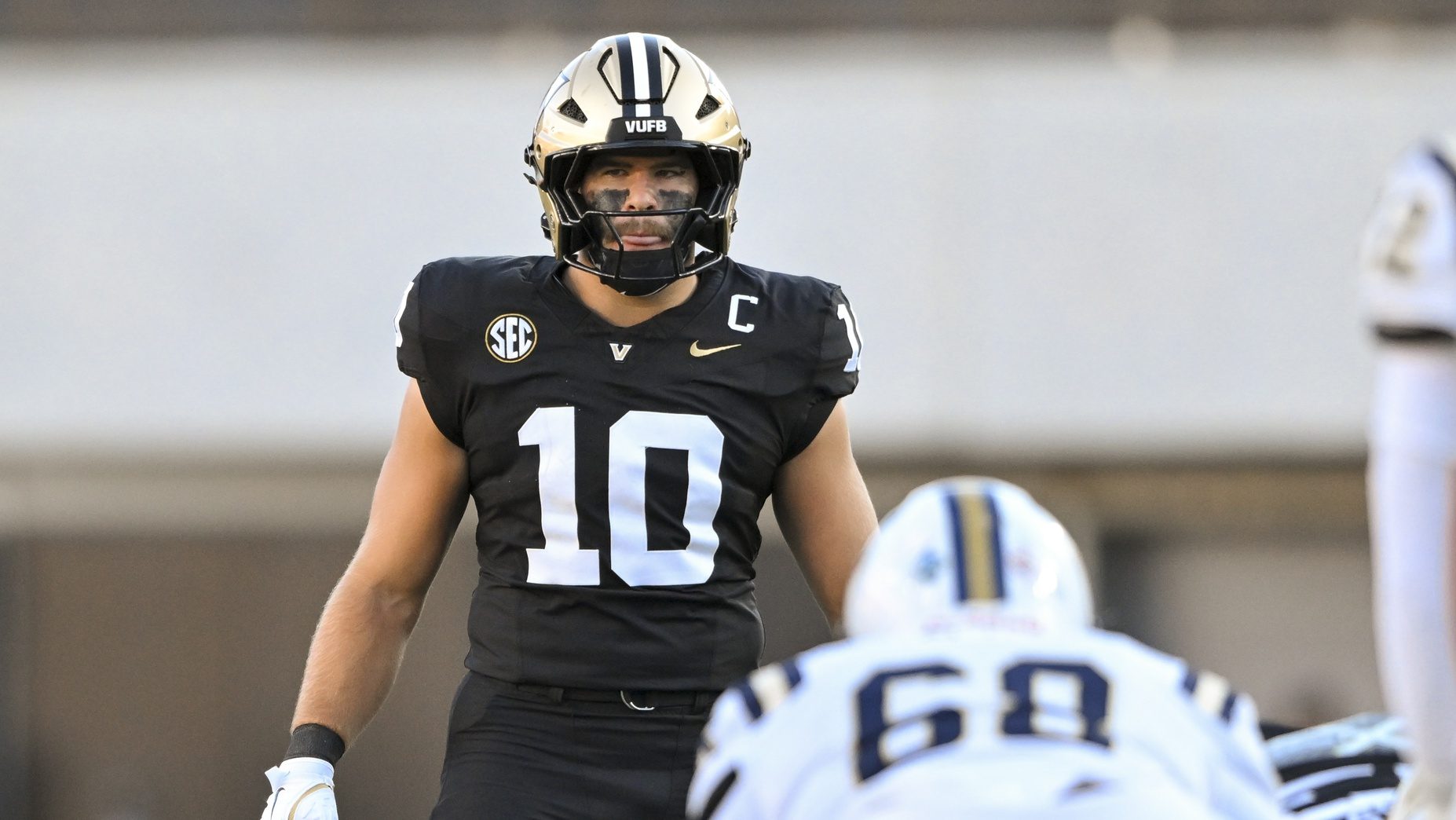On Tuesday, a group of 10 current and former NCAA Division I athletes led by Vanderbilt linebacker Langston Patterson, Vanderbilt defensive lineman Issa Ouattara, and former University of Hawaii quarterback Brayden Schager sued the NCAA to challenge its longstanding redshirt rule.
It’s the latest in a series of lawsuits challenging the NCAA’s core eligibility requirements that began in the fall of 2024 with a case filed by the Vanderbilt players’ teammate, Diego Pavia.
The lawsuit, filed as a class action in the middle district of Tennessee, argues that the NCAA’s eligibility rules that state players only have five consecutive seasons to complete a maximum of four full seasons violates antitrust law.
Specifically, the case aims to strike down the “redshirt rule,” where the NCAA allows players to sit out a season, or “redshirt,” if they want to preserve one of their four years of eligibility—a choice commonly made by players who are injured or who hope to transfer. However, players have to continue to practice with the team while they redshirt. The lawsuit argues that players should be able to complete five full years of play within the five-year window, rather than four, and not have to redshirt.
The lawsuit also argues that in the era of NIL (name, image, and likeness) and revenue-sharing, the rule prevents players from valuable compensation opportunities.
“So long as college athletes remain within the NCAA’s five-year eligibility window, they should not be arbitrarily barred from competing in seasons for which they are physically, academically, and competitively prepared,” the complaint said. “By inserting such a barrier, the NCAA restricts fair competition, depresses college athlete compensation, and entrenches its cartel power in violation of the Sherman [Antitrust] Act.”
The arguments are similar to the dozens of others filed since October 2024. But this lawsuit differs in that it challenges the concept of an eligibility rule across sports, rather than seeking an individual injunction allowing a specific player to compete this season.
It’s also not the only lawsuit to challenge the concept of allowing players four seasons. Diego Pavia’s successful lawsuit, for example, argued that years played at junior college shouldn’t count toward eligibility. But Tennessee basketball player Zakai Zeigler challenged the rule that a player should only have four full seasons to compete within five years (though his request for an injunction was denied).
NCAA president Charlie Baker has previously warned that the lawsuits could challenge a core aspect of college sports reflected in its eligibility rules: that players have to be students, that their eligibility is tied to being enrolled in college, and that they can’t compete in perpetuity.
“We are not challenging the NCAA’s rule limiting players to five years of eligibility to play college sports or the concept of a defined eligibility period generally,” co-lead counsel Ryan Downton said in a statement. “But the NCAA has no basis to prohibit a player who is working just as hard as all of his teammates in practice, in the weight room, and in the classroom, from stepping on the field (or court) to compete against another school in one of those seasons. Five years to practice, five years to graduate, five years to play.”
The greater issue of whether the NCAA has the legal authority to enforce eligibility rules could be resolved in either Congress or at the Supreme Court level.
The Supreme Court often chooses to take up cases that involve a “circuit split”—when two federal appeals courts in different parts of the country issue conflicting rulings on the same subject. Multiple eligibility lawsuits are pending at the appeals court level, so it’s possible their rulings could set up potential intervention from the high court.
Meanwhile, the NCAA and power conferences are lobbying in Congress to pass the SCORE Act, a bill that would grant them antitrust protections to impose eligibility rules—as well as other restrictions like transfer rules and compensation limits—on athletes without the fear of future litigation.
“The NCAA stands by its eligibility rules, including the five-year rule, which enable student-athletes to access the life-changing opportunity to be a student-athlete,” an NCAA spokesperson said. “The NCAA is making changes to modernize college sports but attempts to dismantle widely supported academic requirements can only be addressed by partnering with Congress.”

















